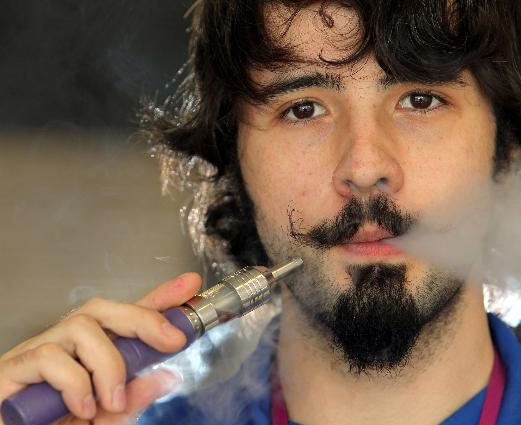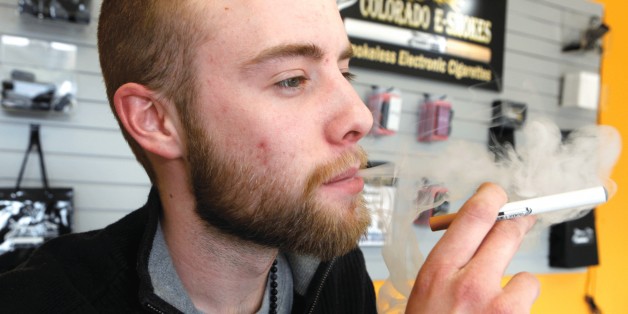Our view: State, feds can step up for e-cig safety
Duluth News Tribune Editorial
Three weeks ago today, Duluth made headlines across the state, becoming the first city in Minnesota to ban e-cigarettes indoors where tobacco use already is forbidden, among other restrictions and regulations.
Then, last week, Hermantown made news by passing a moratorium on the sale and use of electronic cigarettes inside public spaces. In addition, Mankato restricted e-cig sampling; North Mankato placed a moratorium on sampling; and Beltrami County, Bemidji and other communities all are considering their own restrictions, bans, regulations and other measures related to a suddenly booming e-cigarette industry, an industry dogged by serious and legitimate questions and concerns about health and safety.
“There are so many communities that have taken action or are percolating right now on this issue,” Pat McKone of Duluth, director of the American Lung Association of Minnesota, told the News Tribune Opinion page on Friday. “There’s so much unknown. We have to take a serious look. It’s not just a fad.”
With so many communities in Minnesota and around the country scrambling to catch up to ensure safety, especially the safety of a growing number of young people who are using unregulated e-cigarettes, the Minnesota Legislature and the federal government could step up and take a lead. Then, rules, regulations and restrictions would be uniform rather than the patchwork of policies taking shape now that change from border to border and community to community.
“Would it be better if the state regulated this? I do believe that’s the way, but we’re going to have a short legislative session, and I don’t think (lawmakers) are swift enough to do anything this (coming) year,” McKone said. “We do the heavy lifting at the local level and then the state takes it on. That’s a common pattern. And that appears to be what’ll eventually happen here. But every month (we) delay another group of young people is making decisions and poor choices.”
In most communities, kids can buy e-cigarettes easily and legally. And they are. The percentage of U.S. middle school and high school students taking their first drags on e-cigarettes more than doubled from 2011 to 2012, the Centers for Disease Control and Prevention announced this month. In 2012, more than 1.78 million middle school and high school students nationwide had tried
e-cigarettes, a precursor to tobacco cigarettes.
And no wonder. E-cigarettes, as addictive, dangerous and harmful to health as they may be, are actively being marketed to kids, just the way tobacco cigarettes used to be. Remember Joe Camel and the portrayal of smoking as cool and hip and what everyone who’s anyone was doing? This time — powered by nearly $21 million in advertising in 2012, according to the New York Times — it’s kid-friendly flavors such as watermelon and cookies-and-cream milkshake and the portrayal of e-cigarette use as cool and hip and what everyone who’s anyone is doing.
And just what are those kids inhaling? Because e-cigarettes aren’t regulated, no one can say for certain.
So shouldn’t the U.S. Food and Drug Administration step in, test e-cigarette products for safety and regulate what’s in them to ensure continued safety?
Attorneys general from around the country think so. Minnesota Attorney General Lori Swanson joined 40 of her colleagues in a letter last week to FDA Commissioner Margaret Hamburg, urging her “to take all available measures to meet the FDA’s stated deadline of October 31, 2013, to issue proposed regulations that will address the advertising, ingredients and sale to minors of electronic cigarettes.”
The American Heart Association, American Academy of Pediatrics and 13 other agencies think so, too. They sent a letter Sept. 19 to the president, urging him to ensure that the FDA “moves forward promptly with a rule that would assert the agency’s authority over all tobacco products, including
e-cigarettes, little cigars, cigars and other tobacco products not currently under its jurisdiction. More than two years ago, FDA announced its intent to take this action, yet no progress has been made. This delay is having very real public health consequences.”
Delay no more, FDA.
Or state Legislature.
Local communities are scrambling and doing their best to do what’s right. They and the health and safety of our nation need authority and leadership that can only come from St. Paul and other state capitols and from Washington, D.C.
http://www.duluthnewstribune.com/event/article/id/279202/group/Opinion/


